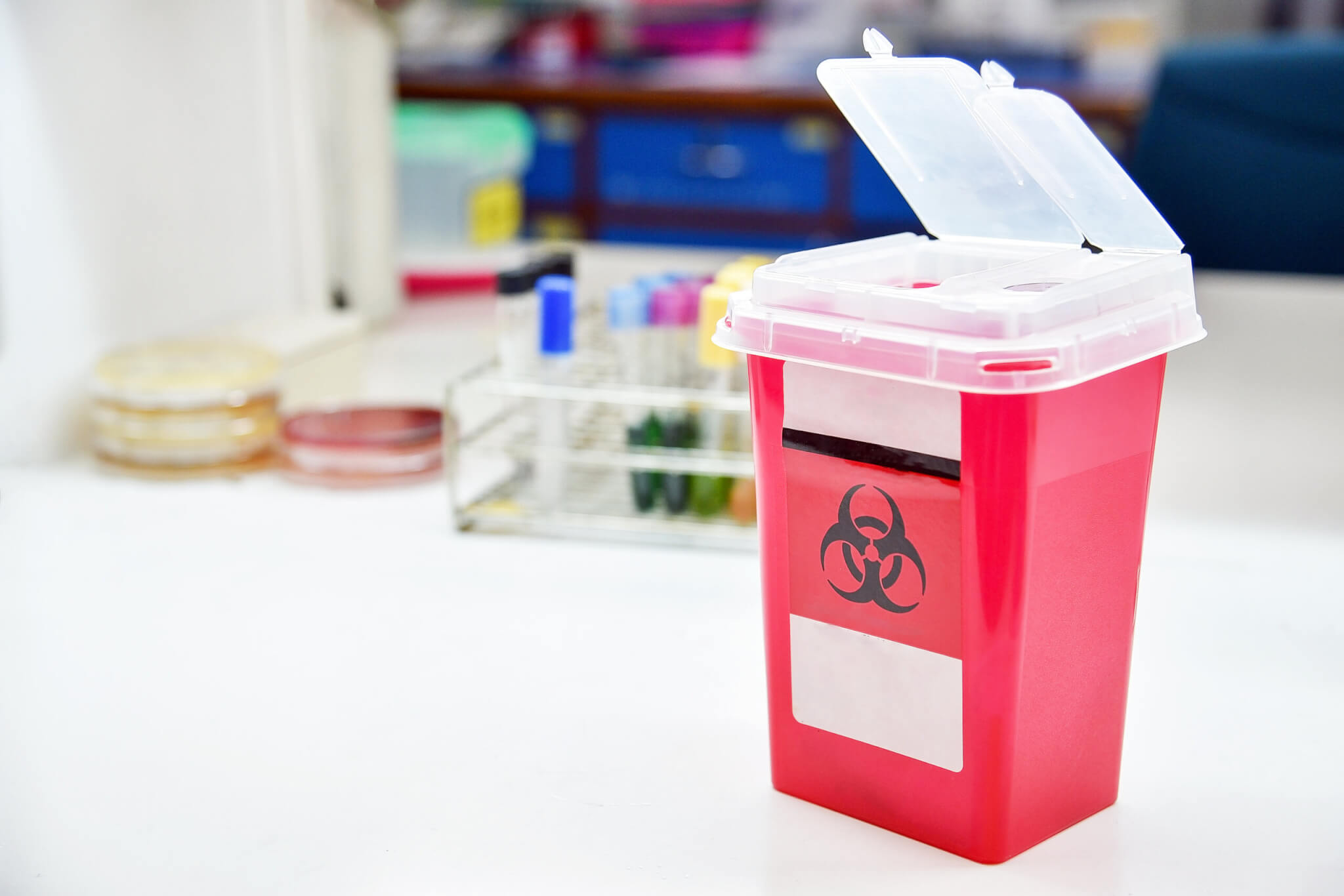Comprehensive Medical Waste Disposal Services for Healthcare Facilities
Comprehensive Medical Waste Disposal Services for Healthcare Facilities
Blog Article
Responsible Solutions: Recognizing Medical Waste Disposal Provider
In the realm of medical care, the appropriate disposal of medical waste is a critical aspect that requires careful factor to consider. The relevance of handling medical waste responsibly surpasses plain conformity with guidelines; it directly impacts public wellness and environmental safety. As medical care centers generate different sorts of waste that need specialized handling, recognizing the subtleties of medical garbage disposal solutions is paramount. By exploring the ins and outs of this crucial procedure, we can clarify the most effective methods, advantages of expert services, and sustainable options available.
Importance of Proper Clinical Garbage Disposal
Correct medical waste disposal is vital in preserving a safe and sanitary atmosphere within healthcare centers. In health care settings, different types of waste are created daily, consisting of contagious materials, sharps, ended medicines, and chemical compounds.

Types of Medical Waste
Within health care facilities, a varied range of waste products classified as clinical waste is created, each requiring details handling and disposal approaches. Pathological waste, which includes tissues, body organs, and body parts, demands appropriate disposal to respect the self-respect of the departed and protect against any kind of biohazards. Comprehending the various kinds of medical waste is crucial for medical care centers to execute efficient waste management approaches and shield public health and the environment.
Regulations and Compliance
Health care centers should comply with strict laws relating to the handling and disposal of medical waste to make certain compliance with lawful requirements and safeguard public health and wellness. These laws are established to avoid the spread of infections, secure the environment, and preserve the security of medical care workers and the public. Numerous regulatory bodies, such as the Epa (EPA), the Occupational Safety and Health And Wellness Administration (OSHA), and the Department of Transportation (DOT), have details guidelines that healthcare centers have to follow.
To comply with these policies, healthcare facilities should appropriately segregate, store, transportation, and take care of various types of clinical waste. This consists of sharps waste, transmittable waste, contaminated materials, and pharmaceutical waste, each calling for certain taking care of procedures. Facilities must additionally preserve accurate records of waste generation and disposal to demonstrate compliance throughout inspections.
Non-compliance with clinical waste laws can result in serious fines, fines, and damages to the center's reputation. Consequently, it is essential for health care facilities to stay notified concerning the current policies and implement robust compliance actions to safeguard public wellness and the setting.
Advantages of Specialist Disposal Solutions
Involving expert clinical waste disposal services supplies health care facilities a trusted and effective remedy for managing dangerous materials. These services employ qualified specialists that are well-versed in handling various types of clinical waste, ensuring correct partition, product packaging, transportation, and disposal. Medical Waste Disposal Services.
Moreover, specialist disposal solutions utilize modern tools and follow sector finest methods to lessen environmental effect and minimize the danger of contamination. This not only promotes a much safer workplace for healthcare personnel yet also adds to total public health and wellness and safety. Furthermore, contracting out clinical waste disposal can lead to cost financial savings over time by removing the demand for in-house administration and disposal systems.
Lasting Practices in Healthcare

One key lasting method in medical care is waste reduction. By implementing read methods to decrease unnecessary product packaging, single-use items, and total waste generation, health care facilities can significantly lower the quantity of waste sent to garbage dumps or incineration. Additionally, reusing programs for products like paper, glass, and plastic can further lower the environmental impact of medical care operations.

Conclusion
To conclude, appropriate medical garbage disposal is crucial in maintaining a healthy and balanced and secure atmosphere for both medical care workers and the public. Recognizing the various kinds of medical waste, following laws and conformity criteria, and utilizing specialist disposal solutions are crucial steps in responsible waste management. By taking on lasting methods in healthcare centers, we can Go Here reduce ecological impact and guarantee the well-being of all people involved in the medical care market.
As health care centers create numerous kinds of waste that need specialized handling, understanding webpage the nuances of clinical waste disposal services is extremely important.Within health care facilities, a varied range of waste products categorized as medical waste is generated, each requiring specific handling and disposal approaches. Comprehending the numerous types of clinical waste is important for healthcare centers to carry out efficient waste monitoring methods and secure public health and wellness and the environment.
By applying methods to reduce unnecessary packaging, single-use items, and overall waste generation, healthcare facilities can substantially lower the amount of waste sent to landfills or incineration. Recognizing the various types of clinical waste, following laws and conformity criteria, and making use of specialist disposal solutions are vital actions in accountable waste management.
Report this page